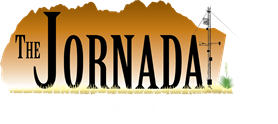| Title | Supporting tribal agriculture and natural resources in a changing climate working group |
| Publication Type | Conference Paper |
| Year of Publication | 2017 |
| Authors | Reeves M, Deswood H, Kelley W, Lane E, Novak R, Peck DE, Schmitt K, Wiener J |
| Conference Name | National Adaptation Forum |
| Date Published | 05/2017 |
| Publisher | National Adaptation Forum |
| Conference Location | St. Paul, MN |
| ARIS Log Number | 343470 |
| Abstract | The U.S. Department of Agriculture (USDA) Climate Hubs were created in 2014 to deliver science-based, region-specific information and technologies to enable climate-informed decision-making. Our stakeholders include agricultural and natural resource managers (i.e. farmers, ranchers, forest land managers), USDA agencies, and cooperative extension among others. The Climate Hubs have a unique opportunity to facilitate dialogue on challenges to implementing USDA programs for conservation or technical assistance in tribal communities. Conversely, it is also important to share examples of adaptation projects that have been successful at navigating USDA and other federal programs. |


